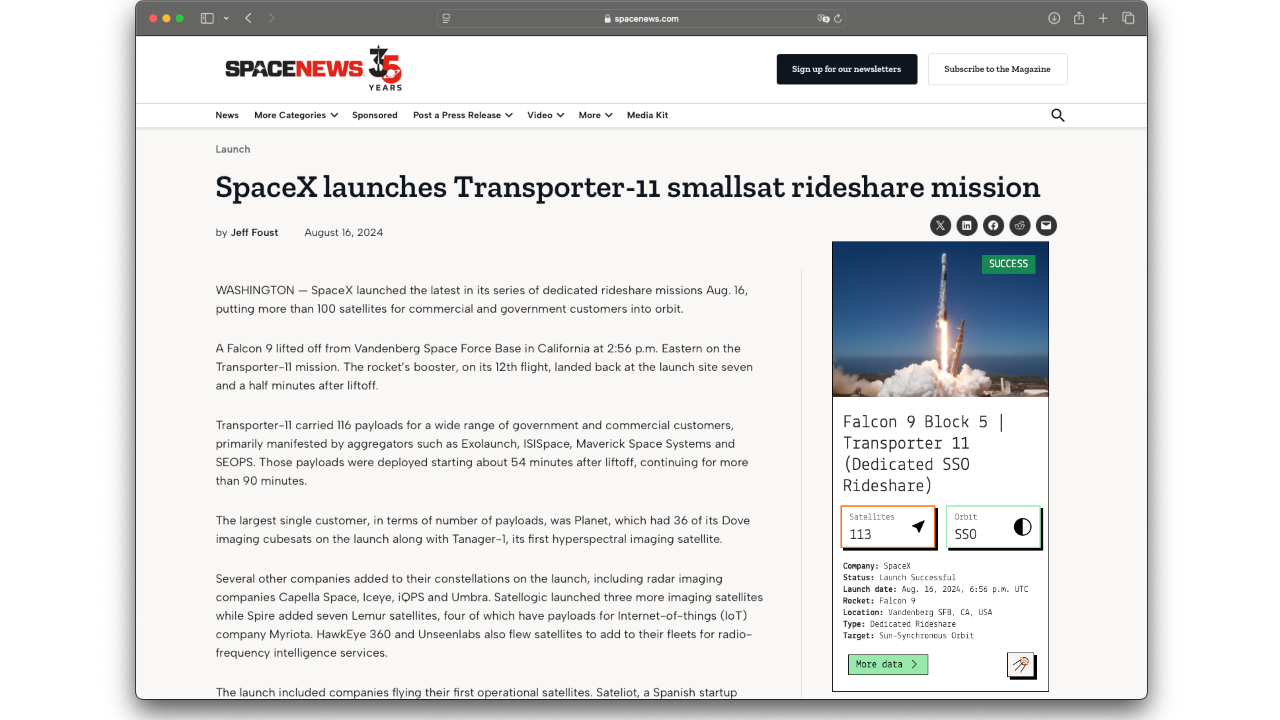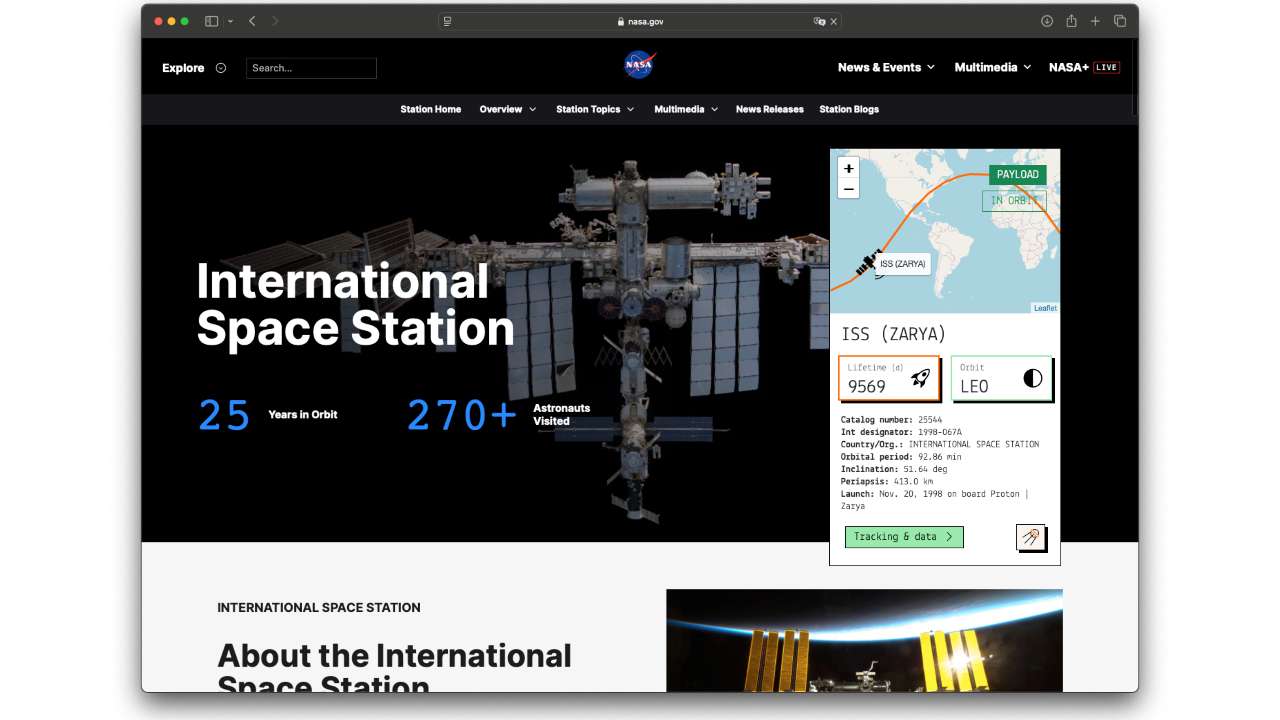Key statistics
Satellite COSMOS 220 at a glance.
Uptime
20995
Days in orbit
Revolutions
≈ 14.8
Per day
Orbit
LEO
Low Earth Orbit
Inclination
74.0
Latest
Satellite identification and parameters
Extended collection of information and parameters for COSMOS 220.
Object identification
Identified? True
Debris? False
Object name: COSMOS 220
International designator: 1968-040A
Object number (NORAD): 3229
Object ID (CCSDS): 3229
Country: COMMONWEALTH OF INDEPENDENT STATES (CIS)
Current information (Y/N): Y
RCS size: LARGE
Orbital parameters
Period: 97.275 minutes
Inclination: 74.0243 deg
SMA: 7006.371 km
Apoapsis: 653.126 km
Periapsis: 603.347 km
RAAN: 275.3434 deg
Eccentricy: 0.00355243
Argument of periapsis: 239.4432 deg
Mean anomaly: 120.3237 deg
Mean motion: 14.80345341 rev/day
Mean motion (dot): 0.00001425 rev/day2
B* drag term: 0.0001895627 1/REarth
Two-line elements (TLE)
Creation date: Oct. 30, 2025, 3:32 a.m.
Reference frame: TEME
Reference center: EARTH
Epoch: Oct. 29, 2025, 10:40 p.m. UTC
TLE line 0: 0 COSMOS 220
TLE line 1: 1 03229U 68040A 25302.94504958 .00001425 00000-0 18956-3 0 9994
TLE line 2: 2 03229 74.0243 275.3434 0035524 239.4432 120.3237 14.80345341 56318
Live tracking on map
Real-time ground track for satellite COSMOS 220.
In-orbit conjunctions
A list of the most updated potential collisions computed for object COSMOS 220.
Associated space launch
The first soviet navigation system called Tsiklon consisted of Zaliv satellites in low earth orbit.
COSMOS 220 was lifted into orbit during the mission ‘Kosmos-3M | Zaliv 2’, on board a Kosmos-3M space rocket.
The launch took place on May 7, 1968, 1:58 p.m. from 132/2.
For more information about the launch, click the button.
Kosmos-3M | Zaliv 2
Agency: N/A
Status: Launch Successful
Launch date: May 7, 1968, 1:58 p.m. UTC
Rocket: Kosmos-3M
Launch pad: 132/2
Location: Plesetsk Cosmodrome, Russian Federation
...
Latest news about this satellite
There are no fresh news available about this satellite. Check back as we update our databases every day.
Newsletter sign-up
Weekly statistics, charts and insights to help you stay on top of the space industry.




